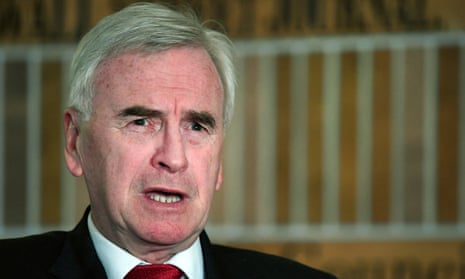The UK tax system does help reduce the country’s wealth inequality problem, according to a report released on Monday by the Institute for Fiscal Studies, but benefits still do most of the heavy lifting.
The findings were seized on by the shadow chancellor, John McDonnell, who said the IFS’s evidence showed that the government was wrong to plan tax cuts.
The IFS analysis, funded by the government-backed Economic and Social Research Council, contradicts a report published last yearby the Office for National Statistics, which found that the tax system has a “negligible effect on income inequality”.
The institute said that the top 20% of earners had an income 12 times that of the bottom 20% before both taxes and benefits take effect, falling to five times afterwards.
Benefits account for the majority of that reduction in the inequality gap, the IFS said, but taxes also played their part. It said the ONS had been wrong to say that VAT and excise duty hit poorer households harder, insisting the effect was about equal.
Pascale Bourquin, a research economist at IFS said: “The tax and benefit system significantly reduces the gap between rich and poor, with benefits playing a particularly big role. However, contrary to the ONS’s claim, taxes do also reduce inequality.
“But the bigger picture is that what matters for income inequality is the progressivity of the tax and benefit system as a whole, and not a specific part of it. The government should achieve its desired amount of redistribution using those parts of the tax and benefit system best suited to that particular job.”
McDonnell said: “The IFS has confirmed the importance of taxation and social security in creating a fairer society. We all benefit at different times of our lives from the system we pay into, but many are being pushed into poverty by low pay, sharply rising rents and brutal cuts to social security.
“With tax cuts already featuring in the Conservative leadership election campaign, it’s clear only Labour is serious about addressing the problems created by nine years of austerity.”
The IFS found that benefits are still by far the biggest tool for reducing inequality. The poorest fifth of society receive 16 times more in benefits as a share of their net income than the highest-income fifth does.
But the highest-income fifth pays just 2.7 times as much direct tax as a share of income as the poorest fifth.









